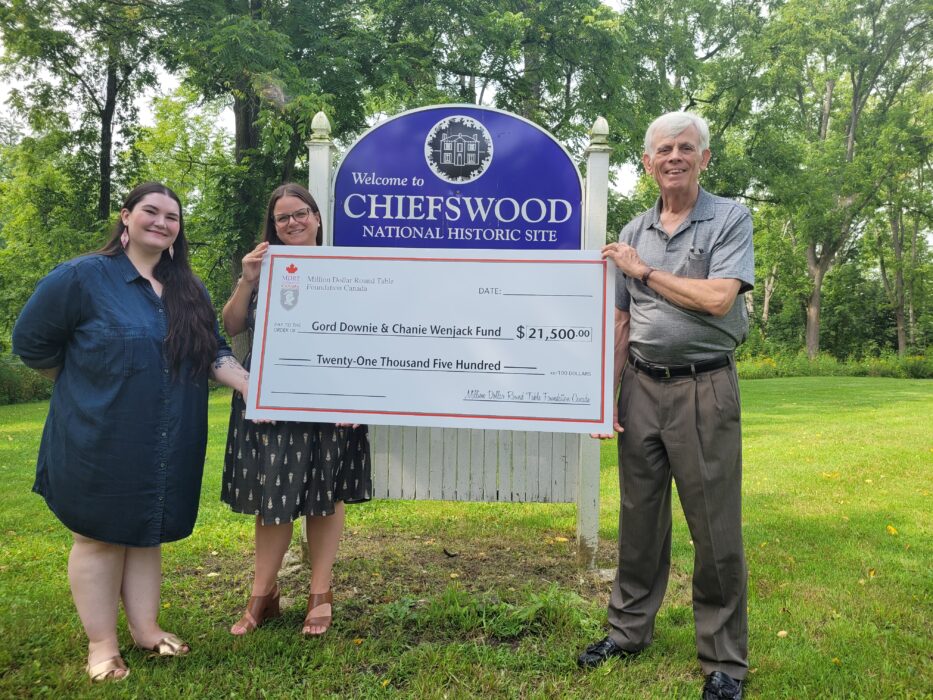
A local foundation has raised $21,500 for the Chanie Wenjack fund in a symbolic honouring of the 215 Indigenous children whose remains were found in a hidden grave at the former Kamloops Indian Residential School in May.
The cheque was presented at the Chiefswood Museum on Six Nations last Thursday in keeping with the museum’s slogan “where cultures meet” – one of the founding principles of the Chanie Wenjack Fund.
The Gord Downie and Chanie Wenjack fund was established by the late Tragically Hip frontman to help educate Canadians about the horrors of residential schools. The fund became Downie’s legacy in his final years as he fought a terminal brain tumour, with a goal of encouraging reconciliation between Indigenous people and settlers and building a better Canada.
The fund was named after a 12-year-old Indigenous boy, Chanie Wenjack, froze to death during a 600 km journey trying to escape the Kenora Residential School in 1966.
His tragic life and death became famous thanks to Downie and his brother Mike who wrote an article about Wenjack in Maclean’s Magazine.
Wenjack later became the subject of a poignant Canadian “Heritage Minute” – historical short vignettes created by the federal government and aired on national television to tell snippets of Canadian history.
“Gord was distraught that he never knew residential schools existed,” said Jordan-MacGregor, development associate at the Gord Downie and Chanie Wenjack Fund. “He felt compelled that other Canadians started to learn this history so he wrote ten poems, which became 10 songs, which became a graphic novel, which is The Secret Path multi-media project.”
It was around that same time Downie discovered he had terminal brain cancer.
“He used his remaining time with us here on earth to continue to promote the story of Chanie Wenjack and everyone learning about Canada’s true history. Our goal is to improve the lives of Indigenous people by building awareness, education and connection between Indigenous and non-Indigenous people throughout Canada.”
She said, “Once you understand that history, you can move that reconciliation forward. There are thousands like Chanie.”
The Million Dollar Roundtable Foundation is a Canada-wide foundation aimed at raising funds for grassroots charities across the country.
When the news of the discovery at Kamloops came out, one of the members suggested they each donate $215 to an Indigenous charity and the amount came out to squarely $21,500, said Evers.
“We wanted it to be symbolic,” said Evers. “We were very happy that 10 per cent of our members across the country participated.”
Afterward, Evers took the two women on a tour of Chiefswood Musuem, the childhood home of famed Mohawk/English poet Pauline Johnson.






